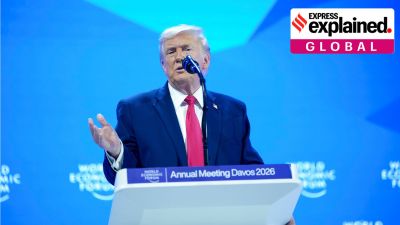That Chavez thing is over
With his impassioned rants against globalisation, Venezuelan president Hugo Chavez is the new rock star of world politics. But as the elections in Peru and Colombia have shown, Latin American voters are not singing along

Venezuelan president Hugo Chavez is the new rock star of world politics. His impassioned rants against globalisation, with animated poses to match, make front-page headlines almost daily. The commentariat8212;particularly in Europe 8212;seems to buy Chavez8217;s line that Latin Americans are so disenchanted by their short tryst with liberalism that they now prefer a strongman to spread the benefits of a commodity boom. The recent moves by a Chavez soul mate, Evo Morales, to renationalise the energy resources of Bolivia reinforce a growing perception that Latin America is lurching to the radical left.
But it8217;s not. While Chavez does seem to rekindle a certain romantic Western nostalgia for Latin American guerrilla movements, the underlying trends point in the opposite direction. Voters in Latin America, far from crying out for a radically new economic model inspired by Caracas, are in fact rallying powerfully behind leaders and parties who promote more-orthodox economic policies. As candidates espousing Chavez-style populism have plummeted in the polls in Mexico and Peru, their camps have tried to distance themselves from the Venezuelan leader. Elsewhere incumbent president Luiz Inacio Lula da Silva in Brazil has won plaudits as an economic manager and looks likely to be re-elected like Alvaro Uribe in Colombia.
This is good news for Latin America. It shows that political societies have evolved to the point where most people realise that, in a globalised world, they have to stick to a reformist path. Consider the maturation of Alan Garcia in Peru, who in his first stint as president let government spending run out of control, launched a disastrous attempt to nationalise the banking sector and left office in 1990 with the economy in crisis. In the run-up to elections, he promised to promote foreign investment, free trade and macroeconomic stability. That had inspired Chavez to hurl invectives at Garcia in an effort to help his left-wing challenger, Ollanta Humala. But Peruvian voters were unimpressed.
In Mexico, ruling-party candidate Felipe Calderon8217;s team has pressed the claim that if leftist Mexico City Mayor Andres Manuel Lopez Obrador is elected, he would undermine the country8217;s economic stability by following Chavez8217;s 8216;8216;irresponsible8217;8217; playbook. Calderon, too, has unexpectedly surged in the polls.
The same basic story line played out in Colombia, where a firmly right-of-centre leader won the re-election on May 28. President Uribe is getting credit for engineering an economic revival, powered by domestic demand, and improving the investment climate by cracking down hard on drug cartels. He has helped cut the government deficit from 6 percent of GDP in the late 8217;90s to 1.4 percent and has promised to rationalise the tax structure. Brazil8217;s Lula has followed a different ideological trajectory, moving from champion of labour to advocate of fiscal responsibility, but the result will likely be the same when voters go to the polls later this year: a second term for a mainstream candidate.
The victory of incumbents is not particularly surprising, since Latin America is enjoying one of its best economic phases ever. Economic growth is likely to average 4.5 to 5 percent this year, spurred by the region8217;s biggest export: commodities. Latin American equity markets have been among the world8217;s top performers over the past three years, rising by 275 percent on average in dollar terms. Inflation in most countries has fallen to single-digit levels and the regin is now running a current account balance.
That8217;s the big picture. But with Chavez grabbing headlines, the exceptional case of Bolivia8212;where economic growth was badly managed by Morales8217; predecessors8212;has become central. Brazil8217;s 800 billion economy is the largest in Latin America, 80 times larger than Bolivia8217;s, and its stability is far more typical of the region. Yet Bolivia is now widely discussed as the important bellwether. Go figure.
Chavez8217;s ambition to become a dominant regional figure in the image of his idol, Simon Bolivar, is legendary. His role in Bolivia8217;s turn to the left8212; and in the Mexico and Peru elections8212;all play into this self-image. His foes in the Peru elections have won and if they triumph in Mexico, he will be pushed to the fringe, marginalised. Much to the disappointment of the romantics, the Chavez road would have led nowhere.
And Latin America will be better off for it. Despite its recent economic successes, the region is still falling behind Eastern Europe and Asia, and needs to aim for even faster growth. Its economies must become less dependent on natural resources in order to raise per capita incomes and address sharp income inequality. All that is more likely to be achieved by strengthening domestic institutions and carrying out microeconomic reform than by selling people a new utopian dream.
RUCHIR SHARMA
The writer is a co-head of global emerging markets at Morgan Stanley Investment Management
- 01
- 02
- 03
- 04
- 05































